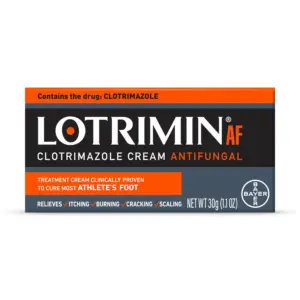In the realm of health supplements, NAC and glutathione have garnered significant attention for their potential health benefits. Both are renowned for their roles in promoting cellular health and combating oxidative stress, yet they function in distinct ways within the body. Understanding these differences can help you make informed choices for your health needs. In this article, we’ll delve into the key differences between NAC and glutathione, exploring their benefits, mechanisms, and how they stack up against each other.

N-Acetyl Cysteine (NAC) is a supplement form of cysteine, an amino acid that plays a crucial role in the synthesis of glutathione. It is considered a semi-essential amino acid, meaning your body can produce it, but it may require supplementation during periods of stress or illness. NAC is valued for its ability to replenish intracellular glutathione levels, which can decrease due to stress, illness, or aging. By supporting glutathione production, NAC contributes to detoxification processes and enhances immune function.
NAC Benefits
- Supports Respiratory Health: NAC is often used to help manage chronic respiratory conditions, such as chronic obstructive pulmonary disease (COPD) and cystic fibrosis. It acts as a mucolytic, breaking down mucus and easing breathing. Additionally, NAC’s anti-inflammatory properties may help reduce respiratory tract inflammation, improving lung function over time. This makes it a valuable supplement for individuals suffering from respiratory issues, particularly during cold and flu seasons.
- Promotes Detoxification: NAC aids in detoxifying the body by supporting liver health and enhancing the breakdown of toxins. It acts as a precursor to glutathione, the liver’s primary detoxification agent. Moreover, NAC may help protect liver cells from damage caused by medications, alcohol, and environmental toxins. Its role in liver health extends beyond detoxification; it also supports overall liver function, which is crucial for metabolic processes.
- Boosts Brain Health: Some studies suggest NAC may help improve cognitive function and reduce symptoms of mental health disorders like depression and schizophrenia. Its antioxidant properties help mitigate oxidative stress in the brain, which is linked to cognitive decline. Furthermore, NAC may influence neurotransmitter levels, potentially improving mood and cognitive clarity. This makes it a promising adjunct therapy for mental health conditions.
What is Glutathione?

Glutathione is a powerful antioxidant made up of three amino acids: cysteine, glycine, and glutamine. It is naturally produced in the liver and plays a vital role in neutralizing free radicals, supporting immune health, and detoxifying the body. Its synthesis and recycling are crucial for maintaining cellular health and preventing oxidative damage. Glutathione also supports the regeneration of other antioxidants, amplifying its protective effects.
Glutathione Benefits
- Antioxidant Powerhouse: Glutathione is one of the most potent antioxidants in the body, protecting cells from damage caused by oxidative stress. It helps neutralize free radicals, which are unstable molecules that can damage cells and lead to chronic diseases. In addition to its direct antioxidant action, glutathione regenerates other antioxidants, such as vitamins C and E, ensuring a comprehensive defense against oxidative damage. This makes it a critical component in maintaining overall health and preventing age-related diseases.
- Immune System Support: By enhancing the function of immune cells, glutathione helps the body fend off infections and diseases. It plays a role in the activation and proliferation of immune cells, such as lymphocytes, which are crucial for adaptive immunity. Moreover, glutathione modulates inflammation, helping to balance the immune response and prevent excessive inflammation. This is particularly important for individuals with compromised immune systems or those exposed to high levels of environmental toxins.
- Skin Health: Often used in skincare, glutathione is known to improve skin elasticity and reduce the appearance of wrinkles and age spots. Its antioxidant properties help protect skin cells from oxidative damage, which is a major contributor to skin aging. Additionally, glutathione may help lighten hyperpigmentation and even out skin tone, making it a popular ingredient in skin-brightening products. Its ability to improve overall skin health makes it a valuable supplement for those seeking to maintain youthful and radiant skin.
NAC vs Glutathione: Mechanisms of Action
While both NAC and glutathione are involved in maintaining cellular health, their mechanisms of action differ significantly. Understanding these differences can help tailor your supplement choices to your specific health needs.
NAC: The Precursor
NAC serves primarily as a precursor to glutathione. When you consume NAC, your body converts it into cysteine, which then helps synthesize glutathione. This is particularly important because direct supplementation of glutathione is often less effective due to poor absorption in the digestive tract. NAC’s ability to boost intracellular glutathione levels makes it a preferred choice for those looking to enhance antioxidant defenses indirectly. Its role as a precursor also means it can support various physiological functions beyond just antioxidant production.
Glutathione: The Direct Antioxidant
Glutathione works directly within cells to neutralize free radicals and maintain redox balance. It also regenerates other antioxidants, such as vitamins C and E, amplifying its protective effects against oxidative stress. Unlike NAC, glutathione acts immediately to combat oxidative damage and support cellular health. Its direct action makes it an essential component in detoxification pathways, particularly in the liver. Additionally, glutathione is involved in protein synthesis and DNA repair, highlighting its multifaceted role in maintaining cellular integrity.
Health Implications of NAC and Glutathione

by Supliful – Supplements On Demand (https://unsplash.com/@supliful)
Both NAC and glutathione are associated with numerous health benefits, but their applications can vary based on individual needs and conditions. Understanding these implications can guide you in choosing the right supplement for your health goals.
Oxidative Stress and Cellular Health
NAC and glutathione both play crucial roles in reducing oxidative stress, a condition where an imbalance between free radicals and antioxidants leads to cell and tissue damage. Oxidative stress is linked to various chronic diseases, including cancer, diabetes, and neurodegenerative disorders. By supporting antioxidant defenses, both supplements contribute to overall cellular health and longevity. NAC’s role as a precursor to glutathione makes it a valuable tool for enhancing the body’s natural defenses, while glutathione’s direct action provides immediate protection against oxidative damage.
Immune Boosters
Both NAC and glutathione have immune-boosting properties. NAC enhances the production of glutathione, which in turn supports the immune system. This is particularly beneficial for individuals with compromised immune function or those recovering from illness. Glutathione directly improves immune cell function, helping the body respond effectively to pathogens. Its role in modulating inflammation also ensures a balanced immune response, preventing excessive inflammation that can lead to tissue damage.
Detoxification
The detoxification process relies heavily on glutathione to neutralize toxins and facilitate their excretion. This process is critical for maintaining liver health and preventing toxin accumulation in the body. NAC, by boosting glutathione levels, indirectly supports detoxification pathways, particularly in the liver. This makes NAC a valuable supplement for individuals exposed to environmental toxins or those undergoing detoxification protocols. Both supplements play complementary roles in supporting the body’s natural detoxification processes.
Choosing Between NAC and Glutathione
When deciding between NAC and glutathione supplements, consider your specific health goals and needs. Understanding the unique benefits of each can help you make an informed decision that aligns with your health objectives.
Supplementation Considerations
- Bioavailability: NAC is often preferred for its ability to enhance glutathione production effectively. Oral glutathione supplements may have lower bioavailability, meaning less is absorbed into the bloodstream. This makes NAC a more reliable choice for boosting glutathione levels indirectly. However, advancements in supplement formulations, such as liposomal glutathione, have improved the bioavailability of glutathione, making it a viable option for direct antioxidant support.
- Safety: Both supplements are generally considered safe when taken at recommended doses. However, it is always advisable to consult with a healthcare provider before starting any new supplement regimen, especially if you have preexisting health conditions or are taking medications. Individual responses to supplements can vary, and a healthcare professional can help tailor recommendations to your specific needs.
- Personal Health Goals: Consider your specific health objectives when choosing between NAC and glutathione. If you are looking to boost glutathione levels indirectly and support respiratory health, NAC might be the better choice. On the other hand, if you seek a direct antioxidant effect and want to enhance skin health, glutathione could be more beneficial. Understanding your health priorities can help you select the supplement that aligns with your goals.
Conclusion
NAC and glutathione are both powerful supplements that offer a range of health benefits. Understanding their unique roles and mechanisms can help you choose the right supplement to support your health goals. Whether you are looking to boost your antioxidant defenses, support detoxification, or enhance immune function, both NAC and glutathione have valuable roles to play in maintaining optimal health.
By making informed choices and consulting with healthcare professionals, you can harness the power of these supplements to improve your well-being and protect against oxidative stress and related health issues. Embracing a comprehensive approach to health, including a balanced diet, regular exercise, and appropriate supplementation, can help you achieve lasting vitality and resilience against the challenges of modern life.



